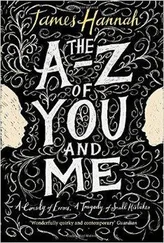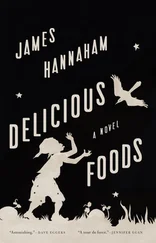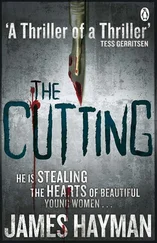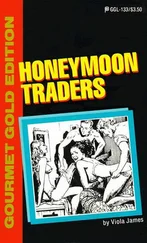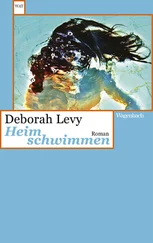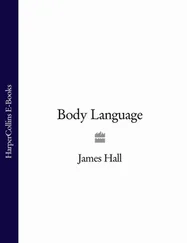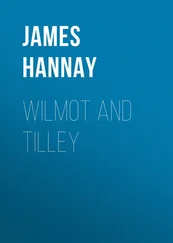James Hannah - Sign Languages
Здесь есть возможность читать онлайн «James Hannah - Sign Languages» весь текст электронной книги совершенно бесплатно (целиком полную версию без сокращений). В некоторых случаях можно слушать аудио, скачать через торрент в формате fb2 и присутствует краткое содержание. Год выпуска: 2015, Издательство: Dzanc Books, Жанр: Современная проза, на английском языке. Описание произведения, (предисловие) а так же отзывы посетителей доступны на портале библиотеки ЛибКат.
- Название:Sign Languages
- Автор:
- Издательство:Dzanc Books
- Жанр:
- Год:2015
- ISBN:нет данных
- Рейтинг книги:5 / 5. Голосов: 1
-
Избранное:Добавить в избранное
- Отзывы:
-
Ваша оценка:
- 100
- 1
- 2
- 3
- 4
- 5
Sign Languages: краткое содержание, описание и аннотация
Предлагаем к чтению аннотацию, описание, краткое содержание или предисловие (зависит от того, что написал сам автор книги «Sign Languages»). Если вы не нашли необходимую информацию о книге — напишите в комментариях, мы постараемся отыскать её.
Sign Languages — читать онлайн бесплатно полную книгу (весь текст) целиком
Ниже представлен текст книги, разбитый по страницам. Система сохранения места последней прочитанной страницы, позволяет с удобством читать онлайн бесплатно книгу «Sign Languages», без необходимости каждый раз заново искать на чём Вы остановились. Поставьте закладку, и сможете в любой момент перейти на страницу, на которой закончили чтение.
Интервал:
Закладка:
But now with the thought of him, his body all beribboned in her mind, she took the River Road ramp and the Mill City Road instead of going her usual way from near the stadium to the office. “Nancy…?” she said out loud and turned off the Cocteau Twins, the sound of it tiresome to her for the first time. She’d have to move on to another group.
Surely he’s home, she said as she used her knowledge of the city, though there were never houses they handled over here past the cement plants. And, of course, heavy industries weren’t their concern at all. As she glided past chained gates, she wondered how one sold those monsters. Old, blackened, rambling. No good lines, nothing clear and distinct. She imagined all the equipment inside and came away with only the vaguest outlines. Towering, greasy. She thought of the shed the other night and said the address where she mailed the rent checks. No ring to it. 718 Gilchrist Road. Mr. William Warrant. William. Bill. Billy. And she laughed and slowed to cross some train tracks.
There was nowhere to start really. He stood at the door, she, below, on the walk. She knew what he saw, his eyes all over her, his voice worried, disturbed. “Is there anything wrong at the house?” he asked. “No, nothing.” And may I come in and yes, of course.
She had little time to focus; they walked through darkened rooms: furniture heavy, covered with chenille bedspreads, their tiny tassels and balls touching a monochrome, thick shag. Oh Jesus, she considered trying to sell all this. Saw it as a buyer she had ushered inside would, though in that case, she would have known everything already. She always did her homework, that’s what they all said.
His eyes were a milky blue. From disease? she wondered, pausing before putting the cup of strong coffee to her lips. This afternoon the liver spots against the pale skin like ink on parchment.
“What was in the box?” she asked. You are so honestly straightforward, they’d always said. Yes, that’s me, she answered. She saw herself, felt her neck arch. Looked down her nose so theatrically, they laughed.
He poured more coffee. From somewhere in cabinets he handed down a package of cake donuts all powdery like cocaine. That she avoided. And now these offerings all dry and, she knew, long past the freshness date she attempted to locate.
“Why?” he asked. She shrugged. And he took it up all naturally. There were no looks, tones in his voice. No reluctance. No fear of the unknown. These she had painstakingly learned to recognize in buyers. Clients. People she served. My, you are good at this, the middle-aged men would say. And she knew that without these wives they would have said so young and attractive.
But not this old. Face sunk. Hands rough. He had been a foreman in one of those mills, she remembered, proud of her memory.
He told her about his wife. And how last week, “out of the blue,” he said, he’d remembered the collection of mugs. See, look, and rising slowly, he brought them down from somewhere in the vast cabinets made of pressed wood. She saw their weak magnet locks. They clicked shut, the sound of Ms. Bojangles’s claws on linoleum. And before her he spread out an array of heavy graceless mugs from all fifty states. Where we traveled together, you know. Oh, not all fifty, of course. We cheated a little. His laugh raspy and short. “I’d forgotten them, left them.” And she’d loved them, too. And Nancy turned her listening away from the tone his voice took. It was outside her recognition. She nodded; she thought of them both living in this house. But she shook it out. A person simply can’t picture most things. I’m all energy and light, she knew. No one ever said full of imagination. What good would that be? she asked herself. Know your strengths, everyone’d said.
But she listened some and drank too much bad coffee. Folger’s, already ground. She tried thinking of it as espresso. Now that helped, made it better.
She had died ten years ago. Almost to the day last week. January 17. A Thursday. Almost to the day. “Ain’t it something, Nancy?” He spoke her name and she was startled from her half reverie. Yes, you thought of the cups then. Lovely, she said, and touched the one from Texas, an oil derrick spouting oil.
From some deep back room he brought the picture of her at fifty. And there she was in her soft hands. Old, turning plump. The cheeks heavily powdered. The hair cropped close to her head. She remembered an awful, masculine picture of Gertrude Stein in some college textbook. All face and dikey. Women filling women’s pussies.
But he talked on; she listened. She concentrated some. She focused herself. She decided, for some reason she wasn’t at all curious about, to pay attention. And he told this and that. Someone dead in Korea. Illness. Travel. His wife did this, he said that.
All until it was dark early. You know how darkness comes on in January in the northeast. And she was too quickly ready to leave. Or not quick enough. Perhaps he was tired out, at the end, considering why all this had happened. Felt violated or foolish. She almost fled; he almost pushed her out and down the steps. They were terribly embarrassed. Full of civility and politeness of words and gestures. Agreed on the lateness, the cold, the need to drive carefully and quickly past the barren mills.
“Well, well,” she said. You are quite a surprising girl. Ms. Bojangles would be speechless. She’d tell Madelaine Woo. No, she’d tell the new man at lunch in the art gallery cafeteria on Friday before the De Chirico exhibit and, she hoped, just hours before she tied lovely ribbons around his penis.
But you know that’s not what happened at all. And no one in the world would have guessed it. Except her father, the only person who intuited things about her, who had skimmed along just above the jungle canopy with the smell of electrical fire in his nostrils, his face averted from flashing lights, the lightness of descent lessened only by the dead man behind him. At that moment, before the sea-green trees proved unlike waves, as hard as jade, he remembered her eight-year-old back ramrod straight at the piano stool, angry but unrelenting, demanding the keys obey her. And only he knew about her, understood everything that would take place without him. It’ll end bad, he said to himself. But at that moment in October of 1969, it is impossible to know his exact reference.
So in two days she was back at Mr. Warrant’s. It was Monday afternoon; there had been more snow, a deeper, bone-level cold. She knocked, using her left hand, the other arm full of groceries. As she shopped she had said, he’ll like this and maybe this. And soon she’d collected eighty dollars’ worth of exotics: pickled quails’ eggs, a rare Tuscan cheese, the greenest, most expensive olive oil in the city.
But there was little surprise on Mr. Warrant’s face. He led her to the kitchen. She chatted about the terrible weather. He told about his bad knee. “Here, right here,” he said, and raised his pants leg. Without reservations. His shin discolored and hairless. As shiny as if he’d hot-waxed it. She looked away. Instead she cut onions into the olive oil, the expensive oil perfuming this room where they stood together. Until he sat and bent over a stack of crossword puzzle books.
Later he turned his nose up at the plate, complained about the small portions though he ate almost nothing at all. There was exotic salad, exotic pasta. She promised she’d bring over her new pasta machine. Then, at the table, at that second, her face toward his which looked away, his eyes on the crossword puzzle book on the table, at his elbow, she saw a lover she’d forgotten who’d run dough through a machine as he stood naked in the kitchen.
It’s like he expects all this, she thought, eating demurely, pretending she was in a restaurant with music and candles and aquariums built into the walls. Here, really, it was too warm and awfully humid as if their bodies, the cooling oil, pasta, salad, puzzle books gave off water, sweated into the air. She watched droplets stream down the door behind him that opened onto some room or yard she’d never seen, that she didn’t want to see. There at the table she promised she’d never learn about a yard or room or garage or if there was a car or anything else at all.
Читать дальшеИнтервал:
Закладка:
Похожие книги на «Sign Languages»
Представляем Вашему вниманию похожие книги на «Sign Languages» списком для выбора. Мы отобрали схожую по названию и смыслу литературу в надежде предоставить читателям больше вариантов отыскать новые, интересные, ещё непрочитанные произведения.
Обсуждение, отзывы о книге «Sign Languages» и просто собственные мнения читателей. Оставьте ваши комментарии, напишите, что Вы думаете о произведении, его смысле или главных героях. Укажите что конкретно понравилось, а что нет, и почему Вы так считаете.

